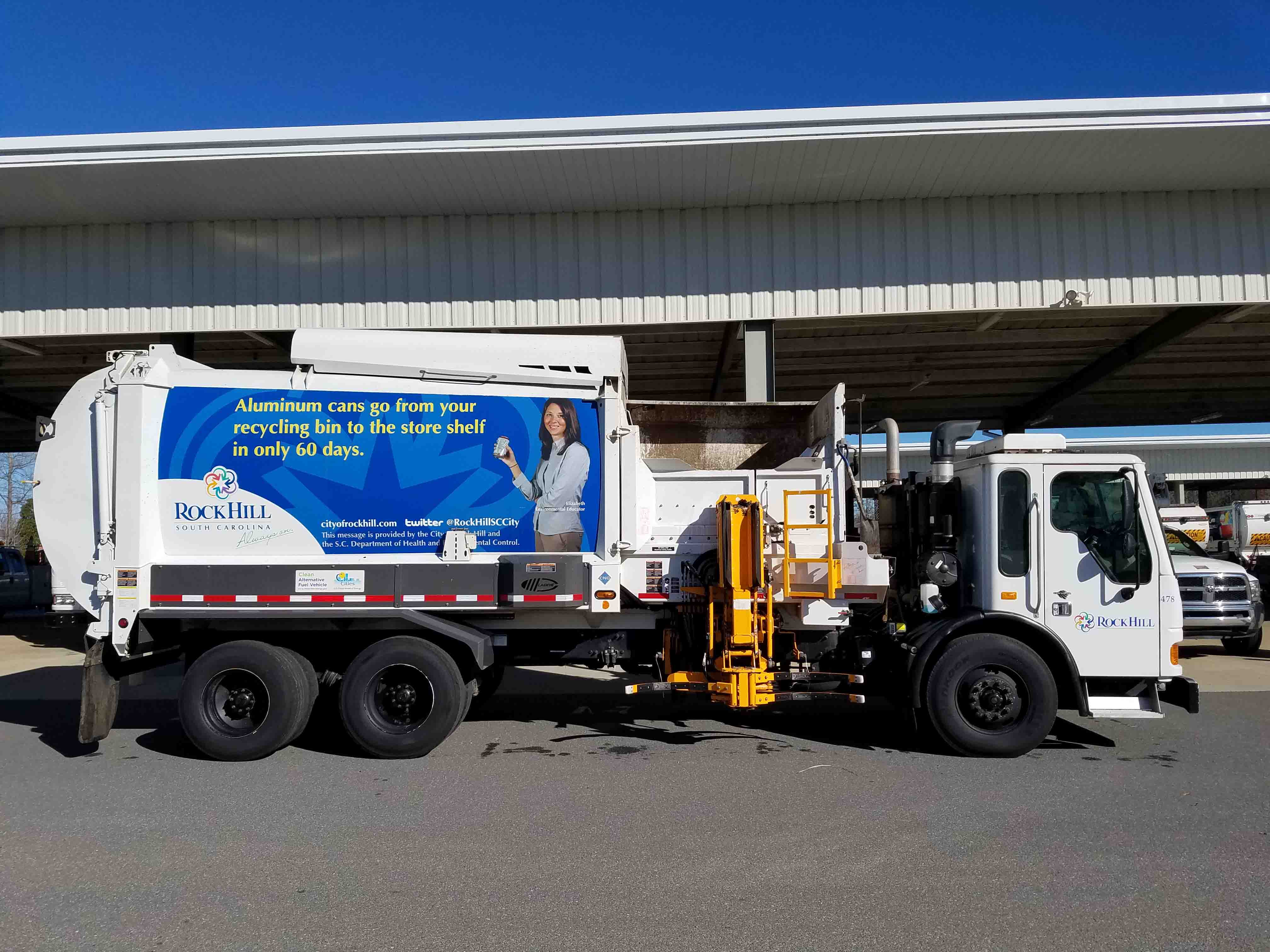Transportation fuel and vehicle maintenance can put a significant strain on a municipal budget. With cities and towns of all sizes throughout South Carolina on a permanent quest to trim expenditures, many are considering using alternative fuels but aren't sure where to start.

Rock Hill CNG alternative fuel garbage truck. Photo: City of Rock Hill.
Here are some suggestions:
More than a dozen alternative fuels are in production or under development for use in alternative-fuel and advanced-technology vehicles. The U.S. Department of Energy recognizes alternative fuels as biodiesel (B20 and above), hydrogen, ethanol (E85), liquefied petroleum gas (propane), compressed and liquefied natural gas, and electricity. Using alternative fuels instead of conventional gasoline or diesel helps reduce dependence on imported oil, can lower vehicle emissions and even lower fuel costs.
1. Do a fleet audit — Are you maximizing the value of your current vehicles?
Fleet managers should look at mileage data for each vehicle in the fleet. Fleet inventories often grow over time to include vehicles that are highly specialized, rarely used or unsuitable for current applications. Before considering alternative fuels, first optimize the city's fleet size and composition to conserve fuel, reduce emissions, and save money on fuel and maintenance. DOE offers several free tools to help fleet managers quantify the environmental and economic impacts of their current fleet footprint and encourage increased efficiency.
2. Don't reinvent the wheel — What kind of vehicles are you looking to convert/replace?
Often certain alternative fuels are more useful for specific vehicle types and classes. Examples include propane cut-a-way transit buses used by the Santee Wateree Regional Transportation Authority and the City of Rock Hill's use of compressed natural gas refuse trucks. When looking at options, cities should consider what works well for their specific vehicle class.
3. Consider infrastructure — How is the city going to fuel the vehicles?
Alternative fuel vehicles need specific stations to refuel. Some fleets choose to install infrastructure on-site, while others use publicly available infrastructure. Work with utilities, natural gas and propane companies, and original equipment manufacturers. Many times it only takes one fleet for an infrastructure provider to invest in a public station. Make sure to check out the DOE Alternative Fueling Station Locator for an interactive map of all the public, private and planned alternative fueling stations.
4. Consider the payback/ROI — Is the cost right?
Alternative fuel vehicles can sometimes be more expensive to purchase. However, factor in lower fuel costs and maintenance over the life of the vehicle, and they can be cost effective. It is important to look at each fuel and vehicle in your fleet closely. Analyze the options to see how quickly potential investments in alternative fuel vehicles will pay for themselves.
Palmetto Clean Fuels, an initiative of the Office of Regulatory Staff – Energy Office, is one of nearly 100 designated DOE Clean Cities coalitions in the U.S. Palmetto Clean Fuels has access to and experience in using DOE tools and can provide technical assistance. Palmetto Clean Fuels can also connect municipal officials with industry resources and other sources of assistance when considering the switch to alternative fuels.
For more information, contact Landon Masters or Maeve Mason, Palmetto Clean Fuels Co-coordinators, at palmettocleanfuels@regstaff.sc.gov.
